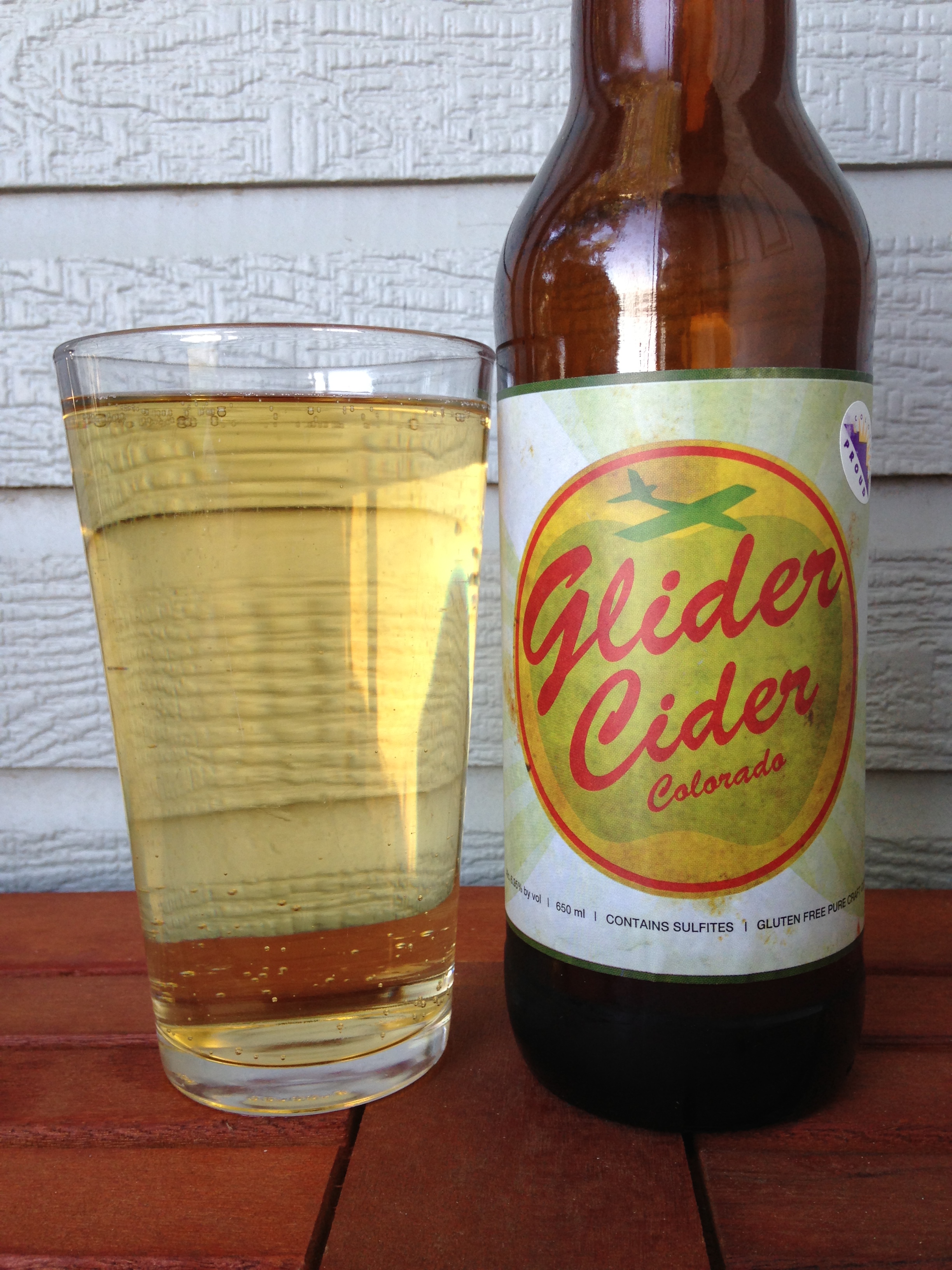Hard Cider Review: Glider Cider by Colorado Cider Company

Overview:
Glider Cider is a hard cider made by Colorado Cider Company of Denver, Colorado. It’s a relatively dry, natural cider whose ingredient list is all of two entries long: yeast and apple juice. Like the other Colorado Cider products, it is sulfited, however (this is generally done either to kill bacteria and wild yeast that exist naturally on the apples and which can have adverse affects on the end product, to stop the fermentation before all the sugars are consumed, or both).
Tasting Notes:
Glider is relatively dry, with just a little residual sweetness from the apple juice, and is quite tart. It’s crisp, clear, pours a pale yellow and, at 7% alcohol, is right around the strength you’d expect from fermenting apple juice without adding any additional sugar into the mix. The tartness lingers quite a long time in the aftertaste–it is not unpleasant but it seems to me that they are either using some very acidic apples in the mix or they are not aging the cider for very long before distribution, and what I’m really tasting is the malic acid that is naturally present in apples but which breaks down spontaneously over time (this malo-lactic fermentation effect is one of the main reasons I advocate aging cider for several months before drinking it).
All in all, Glider is remarkably similar to hard ciders I’ve made on my own, though mine were drier, unfiltered, a bit darker, and contained sediment from carbonating in the bottle (Glider appears to be force-carbonated before bottling). Glider finishes with more sugar than mine have, probably because they either crash the yeast (cool the cider to the point where the yeast goes dormant and drops out of solution) or sulfite it to stop fermentation while there is still some sugar present. But it’s somewhat empowering to know that the home cider making process can easily result in a similar product to naturally-fermented, commercial ciders.
Miscellaneous:
From what I’ve read so far, Colorado is a tough place to source good cider apples, many of which are heirloom varieties that have fallen out of favor in commercial apple growing operations. More’s the pity, because they make great cider and contribute significantly to the diversity of flavor and also the genetic resilience of the apple growing enterprise as a whole (not much in agriculture is as risky as raising a huge number of genetically identical crops that are all vulnerable to the same disease. *cough* Irish potato famine. *cough*). So it will be interesting to see how Colorado Cider Company in particular deals with the sourcing challenges. According to their website, they are dedicated to reviving cider apples in Colorado. I applaud their efforts to that effect, as doing so in a smart way could result not only in better commercial ciders for consumers and better apples for home cider makers, but also in more localized, sustainable systems of agriculture and in contributions to local economies to boot.
–
Thanks for visiting The Cidersage Blog. If you found this content to be useful, consider subscribing via the Subscribe link in the side bar, and be sure to visit our resources and tutorials pages for more in-depth hard cider and mead information.
Leave a comment